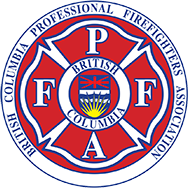NATIONAL LEGISLATIVE ISSUES
Deterring assaults against on-duty fire fighters/paramedics
The IAFF calls on the Minister of Justice to amend the Criminal Code to provide for greater penalties for assaults against onduty fire fighters and paramedics. We also call on Canada’s Senators to recognize the broad support behind Bill C-321 and to ensure swift passage of this important legislation in the Senate.
Eliminating the ‘forever chemical’ PFAS from Fire fighters’ protective gear and fire fighting foams
The IAFF calls on the Government of Canada, through Health Canada and Environment and Climate Change Canada, to recognize the human health and environmental risks of PFAS and to move quickly to identify PFAS as a full class of chemicals under the CEPA, to ban all uses of PFAS, to support the reclamation and safe disposal of firefighting gear and foams containing PFAS, to assist fire departments and municipalities with the costs of transition to PFAS-free protective gear and to monitor the health of federal workers exposed to PFAS in their workplaces.
Strengthening Canada’s Airport Fire Fighting Regulations: Recognizing M-96 and the need to meet international standards for response times and rescue
To address significant regulatory shortfalls that needlessly put the safety of the flying public at risk, the IAFF asks the Minister of Transport to heed the adoption of M-96 and without undue delay, bring the Canadian Aviation Regulations up to ICAO standards, including specifying the rescue of trapped passengers as a required and resourced function of airport fire fighters at Canada’s major airports.
NATIONAL LEGISLATIVE UPDATES
Responding to the Interface (RTI) training
National Framework to Address Occupational Cancer
National Building Code
New Canadian affiliates
FIRE FIGHTER OCCUPATIONAL EXPOSURE REDUCTION: BEST PRACTICES AND INTERVENTION WORKSHOP
About the workshop
Fire fighters are exposed to a wide range of both known and suspected carcinogens. Due to the growing concern around firefighting and cancer in Canada, Health Canada and the IAFF co-sponsored a workshop on fire fighter cancer research priorities. Objectives included outlining the state of the science regarding intervention strategies designed to reduce fire fighters’ exposure to toxicants of concern, and to delineate research priorities that will advance the science of intervention, exposure control, and mitigation of adverse health outcomes such as cancer. Fire service stakeholders were identified and invited due to their multidisciplinary expertise, including subject matter experts, speakers, fire fighters, academics, industry representatives, Indigenous organizations, and governmental representatives (e.g., federal, provincial/territorial, municipal).
Bill C-224
Thank you to MPs from all parties for voting unanimously (319 - 0) in favour of Sherry Romanado's Bill C-224 at 2nd reading. The national framework proposed in this bill will benefit all Canadian firefighters. IAFF members across the country & their families are grateful for your support!
April 4, 2022
The IAFF has advocated for the support of Bill C-224, which first reached the House of Commons at the end of January, put forward by Quebec MP Sherry Romanado.
On April 4, 2022, there was overwhelming support for Bill C-224 by a number of members of parliament at the 2nd reading. Supported by
Don Davies, MP - Vancouver - Kingsway, NDP
Chris Lewis, MP - Exon, Conservative
John Aldag, MP - Cloverdale - Langley City, Liberal
Todd Doherty, MP - Cariboo - Prince George, Conservative (deferred to 3rd reading due to time limits)
Bill C-224 proposes a national framework for cancers linked to firefighting act that will assist with prevention, treatments, and ensuring adequate support is there if a fire fighter develops job related cancer.
UPDATE: APRIL 4, 2022: 2nd Reading to support a National Framework on Cancers linked to Fire Fighting Act.
UPDATE: APRIL 4, 2022: 2nd Reading to support a National Framework on Cancers linked to Fire Fighting Act.
CANADIAN GOVERNMENT ANNOUNCES FUNDING FOR IAFF WILDLAND RESPONSE TRAINING
CANADIAN GOVERNMENT ANNOUNCES FUNDING FOR IAFF WILDLAND RESPONSE TRAINING
April 8, 2022 - Update
The 2022 Budget allocates $37.9 million over five years for improved wildland firefighting resources, including $600,000 in ongoing funding to bring the IAFF’s Responding to the Interface (RTI) wildland training program to Canada, where it will be used to help the federal government honour its commitment to provide wildland response training to 1,000 fire fighters.
The Honourable Bill Blair, Minister of Emergency Preparedness - Liberal






